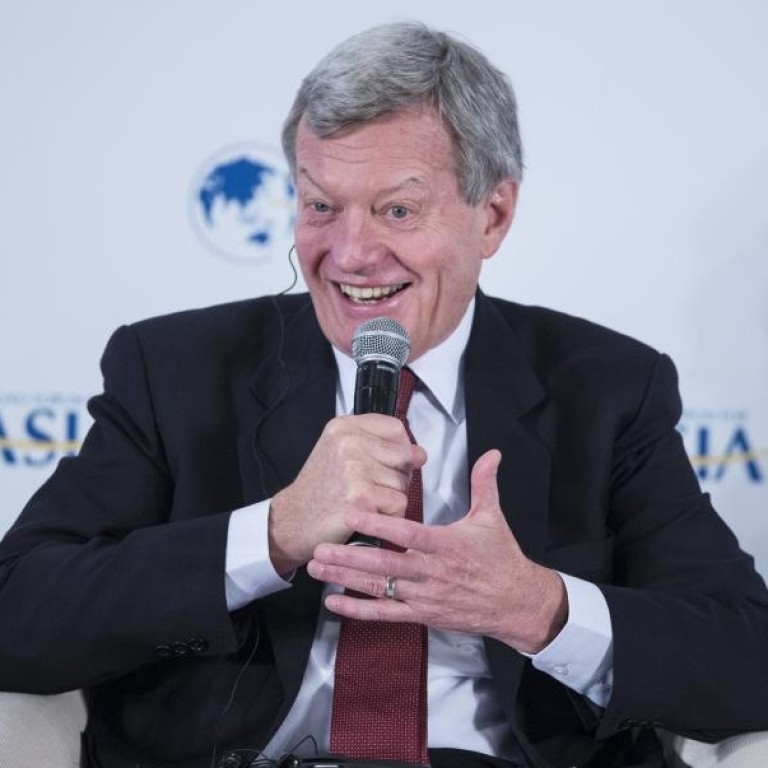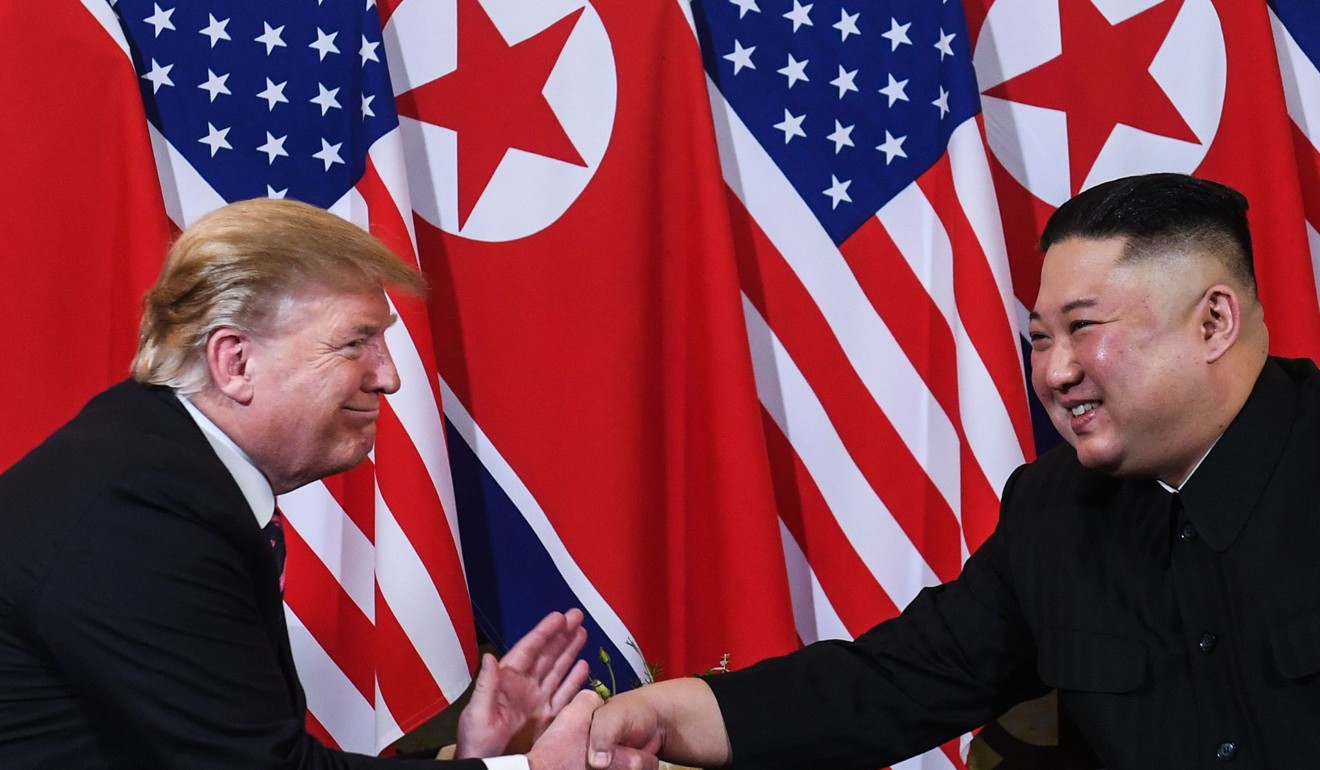
China and America can’t afford walking away without a deal from trade talks, says former US ambassador Max Baucus
- Walking away without agreement will be ‘if not devastating, very detrimental’ for Donald Trump but ‘we are getting closer to a deal’
- Xi Jinping will also want to show he can strike an agreement and implement economic reforms, says former diplomat and senator
Walking away from their trade talks without a deal is not an option for either the United States or China, America’s former ambassador to Beijing Max Baucus has said.
Speaking a day before the US team arrives in Beijing for the latest round of talks, Baucus said on Wednesday that “with each passing day we get closer to a deal” but warned that the actions of both sides had created a “trust deficit” that needed to be overcome.
This round of talks will be the fourth this year amid an extended tariff truce between the world’s two largest economies.
Speaking on the sidelines of Boao Forum for Asia in the southern Chinese province of Hainan, the former diplomat and US senator said that as time went on both sides would find it harder to walk away.
He told the South China Morning Post that the longer the talks dragged on, Donald Trump would find it harder to deploy his preferred tactic of walking away from the talks – as he did during his summit with Kim Jong-un in Vietnam last month.
“It’ll be, if not devastating, very detrimental to the United States and him, and his re-election efforts,” he said.
He also argued that China’s leader Xi Jinping also needs to reach an agreement to show to his country and the world that he can make a deal and will be able to deliver some of the reforms the US and other major trading partners have been demanding.
Trump and Xi reached an agreement in December to delay planned tariff increases until March 1 – a deadline that has since been put back – but Baucus warned “if it goes past June, we’re going to have a problem”.
The former Democrat politician, who served as senator for Montana for nearly four decades, said that the core problem was a trust deficit between the two sides – for which they both share some responsibility.

“China often says it’s going to do things, it’s going to open up, and doesn’t do very much. They say we will but don’t, which creates distrust,” he said. “Trump changes his mind lots … that creates distrust.”
He continued that it was unhelpful for Washington to complain about Italy’s recent decision to sign up for Beijing’s controversial Belt and Road Initiative – a series of development and infrastructure projects that have sparked concerns about “debt diplomacy” and the scope of Beijing’s influence.
He also criticised Washington’s efforts to restrict Huawei’s access to the US market over security fears while pressuring its European allies to do the same, although he accepted there were valid concerns about the Chinese tech giant.
“There’s usually a solution to every problem. For a rat, there’s always a way to escape a cat,” he said. “There’s almost always a solution other than yes or no, other than black or white. So it’s both sides.”

As ambassador, Baucus served between 2014 to 2017 under Barack Obama, who championed a “pivot to Asia” policy that sought to refocus American foreign policy towards the Asia-Pacific region.
But many analysts have panned the Obama administration’s rebalancing efforts in Asia as a failure, while Beijing perceived it as an effort to contain China’s rise.
Baucus admitted that the Obama administration could have “done more” in the region, such as securing the Trans-Pacific Partnership, a free-trade deal between Pacific Rim countries that excluded China.
Trump eventually scrapped the deal, calling it a “disaster” for American jobs, and Baucus conceded: “We could have gotten TPP passed, so we didn’t have to worry about Trump pulling out … I think the president [Obama] could have worked on it earlier. He could’ve twisted some arms in Congress.”
He also said it was “good news” that Trump spoke out more strongly than his predecessors about the barriers China puts in the way of foreign businesses, adding that US firms had been raising these concerns when he was the ambassador to Beijing.
But he added: “The problem is the way he’s gone about it, slapping all these tariffs on. And with his rhetoric against China, and ‘America First policy’ – America’s number one, America’s number one – that sometimes causes hackles to rise over in China and around the world.”


